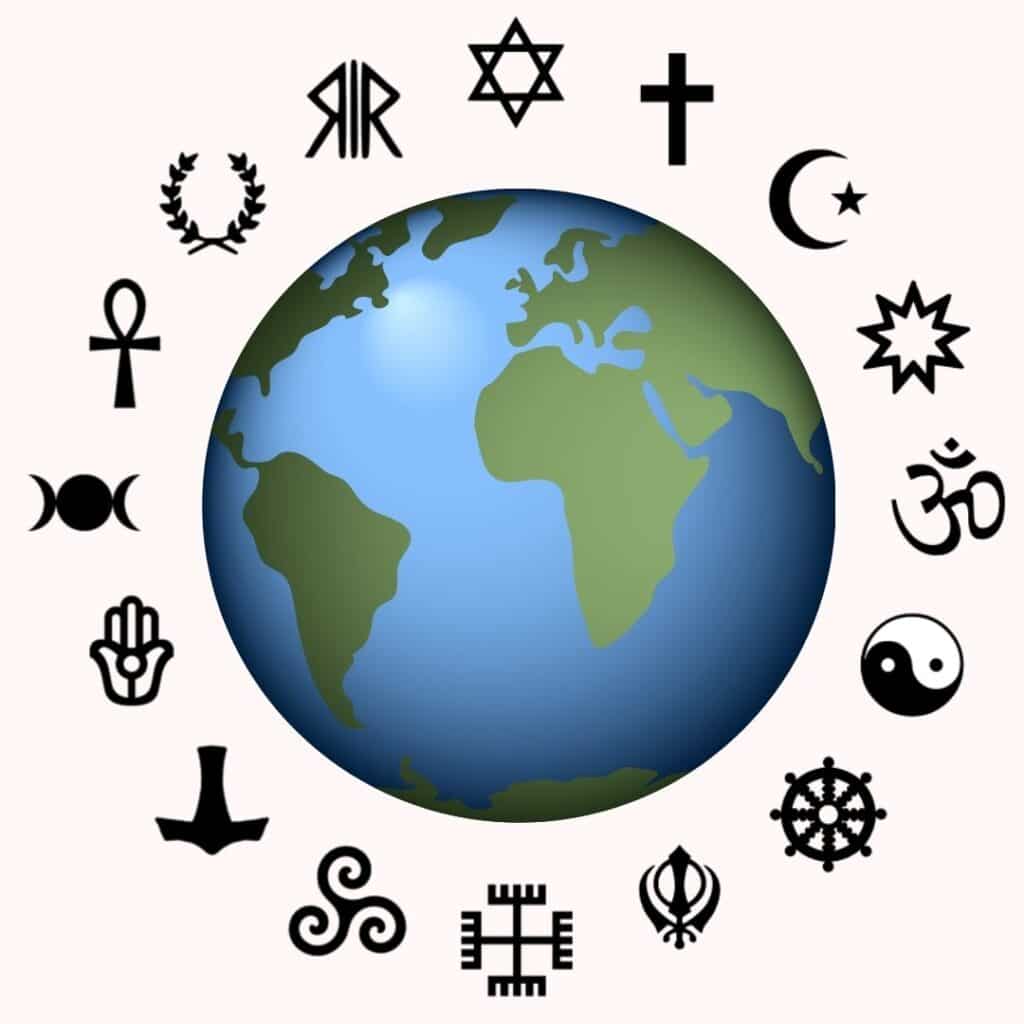Religious Pluralism Is God’s Will
Religious pluralism as the will of God is very different from religious, moral or cultural relativism. Relativism teaches that all values and standards are subjective, and that, therefore, there is no higher spiritual authority available for setting ethical standards or making moral judgments.

WordForPeace.com Special
Rabbi Allen S. Maller
 Religious Pluralism as the will of God
Religious Pluralism as the will of God
Individuals, organizations and movements who are fully committed to contributing to a world at peace and who are equally committed to respect both their own religion and their neighbour’s need to do all they can to promote interfaith religious respect through the advocacy of religious pluralism as the will of God.
Religious pluralism as the will of God is very different from religious, moral or cultural relativism. Relativism teaches that all values and standards are subjective, and that, therefore, there is no higher spiritual authority available for setting ethical standards or making moral judgments. Thus, issues of justice, truth or human rights are, like beauty, just in the eye of the beholder.
But most people, especially those who believe that One God created all of us, refuse to believe that ethics and human rights are simply a matter of taste. Religious pluralism as the will of God is the opposite of cultural or philosophical relativism. Every major religious tradition I have studied has some statements affirming the philosophy of religious pluralism. Just as humans are now learning the importance of biodiversity for the welfare of all the planet’s plants and animals, so too we must we learn the importance of religious diversity for all of our planet’s human beings.
The fundamental idea supporting religious pluralism is that religious people need to embrace humility in many areas of religion. All religions have always taught an anti-self-centered and anti-personal egoism type of humility, and this is something that resonates with religious pluralism. Religious pluralism also opposes a religious, philosophical, and self-righteous intellectual egoism that promotes a tendency to turn our legitimate love for our own key religious figures and traditions into absolutist claims.
Religious pluralism teaches that finite humans, even the most intelligent and pious of them, cannot fully understand everything the way the infinite One (God) does. This is true, for every human being. When it comes to religious truths, we can see them, but only in part. The part we can see derives from the prophets and the holy scriptures.
The Qur’an declares, “Every people has a direction towards which they turn; so compete together wherever you may be as if in a race towards all that is good. Surely God will bring you all together.” (2:148)
We should compete with one another, not by claiming to be in possession of a better or higher truth, but in doing good deeds.
This is a test of the commitment and effectiveness of each community’s leaders, and the sincerity and devotion of each religion’s followers. Competing in doing good deeds is a test for us as believers. It is not a test for determining which religion has the truest truth.
This is why God made us into many communities and many religions. The Qur’an says: “For each We have appointed a clear way of life and a comprehensive system. If God had so willed He would surely have made you a single community: but (didn’t) in order to test you by what (Scripture) He granted you. So compete together as if competing in good works. All of you will (ultimately) return to God and then He will make you understand what you have differed about.” (5:48)
Only at the time of the final Judgment will humans be able to understand the full meaning of their various sacred scriptures and the truths contained in the differences between them. In this world, God has determined that religious humility should rule.
Then we will be able to fulfill this 2500 year old vision: “In that day there will be a highway from Egypt to Assyria. The Assyrians will go to Egypt, and the Egyptians to Assyria. The Egyptians and Assyrians will worship together. In that day Israel will join a three-party alliance with Egypt and Assyria, a blessing upon the heart. The LORD of Hosts will bless them saying, “Blessed be Egypt My people, Assyria My handiwork, and Israel My inheritance.”…(The Bible—Isaiah 19:23-5)
(Allen S. Maller is an ordained Reform Rabbi who retired in 2006 after 39 years as the Rabbi of Temple Akiba in Los Angeles, California. His web site is: www.rabbimaller.com. Rabbi Maller has published 450+ articles in some two dozen different magazines and websites. He is the author of two recent books: Judaism and Islam as Synergistic Monotheisms and Which Religion Is Right For You? A 21st Century Kuzari)





Thank you very much for sharing, I learned a lot from your article. Very cool. Thanks. nimabi